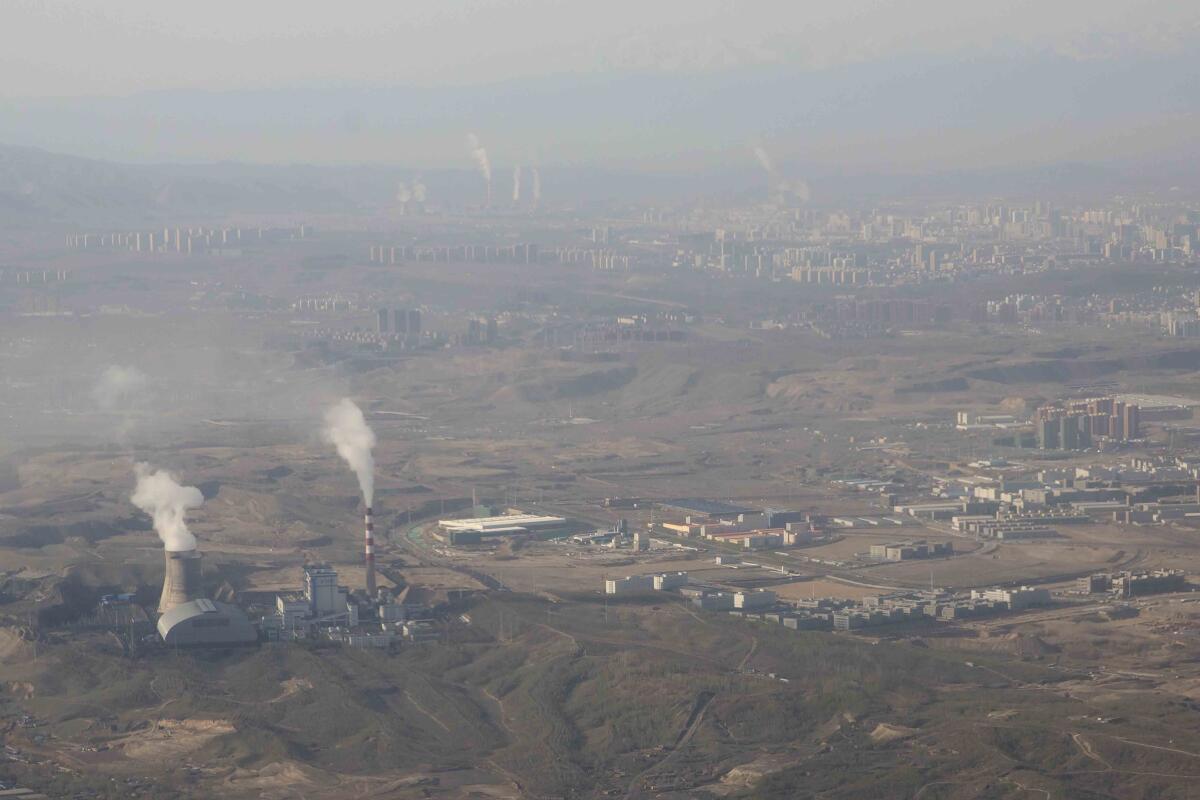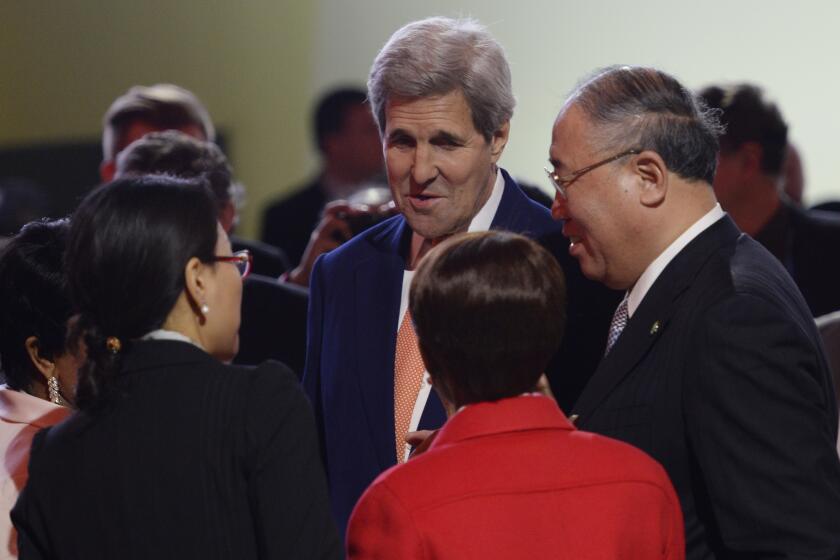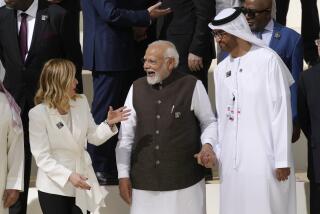China, world’s top carbon emitter, offers few new climate targets ahead of U.N. summit

WASHINGTON — China is offering no significant new goals for reducing climate-changing emissions ahead of the United Nations climate summit set to start next week in Glasgow, Scotland.
China, the world’s top emitter of carbon dioxide and other greenhouse gases that cause global warming, formally submitted its goals Thursday. The highly anticipated announcement includes targets previously established in speeches by President Xi Jinping and domestic policy documents.
On Friday, the Chinese Foreign Ministry announced that Xi would talk to global leaders at the summit by video link only. Xi has avoided foreign travel since before the COVID-19 pandemic began in early 2020.
China says it aims to reach peak emissions of carbon dioxide — which is produced mainly through burning coal, oil and natural gas for transportation, electric power and manufacturing — “before 2030.” The country is aiming for “carbon neutrality,” meaning no net emissions of CO2, before 2060.
Joanna Lewis, an expert in China, climate and energy at Georgetown University, said the document submitted Thursday “gave more detail about [how] China will meet those goals,” through measures such as increasing its wind and solar power capacity and carbon-absorbing forest cover. “It’s not surprising, but it is disappointing that there wasn’t anything new” in terms of goals, Lewis said.
Climate experts say key questions about China’s future carbon emissions remain unanswered.
The rest of the world may suffer the consequences if the U.S. and China don’t work together on reducing greenhouse gas emissions.
“The document gives no answers on the major open questions about the country’s emissions,” said Lauri Myllyvirta, lead analyst at the Center for Research on Energy and Clean Air in Helsinki, Finland. “At what level will emissions peak and how fast should they fall after the peak?”
Nations participating in the U.N. climate conference submit what are called nationally determined contributions, or NDCs, that lay out emissions reduction plans.
It’s still possible that China may have additional announcements at the climate summit related to financing for renewable energy overseas, said Lewis.
China’s NDC is “consistent with everything that we’ve seen from Xi Jinping’s previous statements,” said Sam Geall, chief executive of the nonprofit organization China Dialogue and associate fellow at Chatham House in London.
It’s not that people don’t care about global warming. It’s just that they don’t seem to care in rational proportion to the enormity of the problem.
“It may not be enough to get us to 1.5 degrees, which is where we want to go,” he said, referring to the target set under the Paris Agreement of keeping global warming under 1.5 degrees Celsius (2.7 degrees Fahrenheit) above pre-industrial levels.
At the summit, Geall said he is looking to see countries take steps to “restore trust in the process” of climate negotiations, after widespread economic disruptions caused by the COVID-19 pandemic. “Promises on climate finance” — money pledged by rich countries to fund climate responses in developing countries — “are coming in far too late, far too small,” he said.
More to Read
Sign up for Essential California
The most important California stories and recommendations in your inbox every morning.
You may occasionally receive promotional content from the Los Angeles Times.












